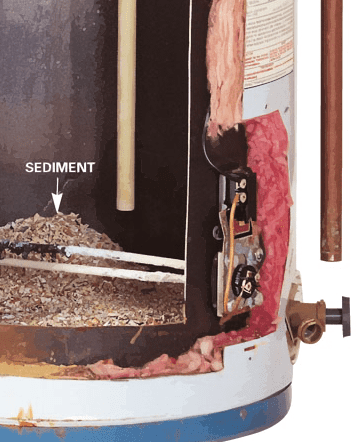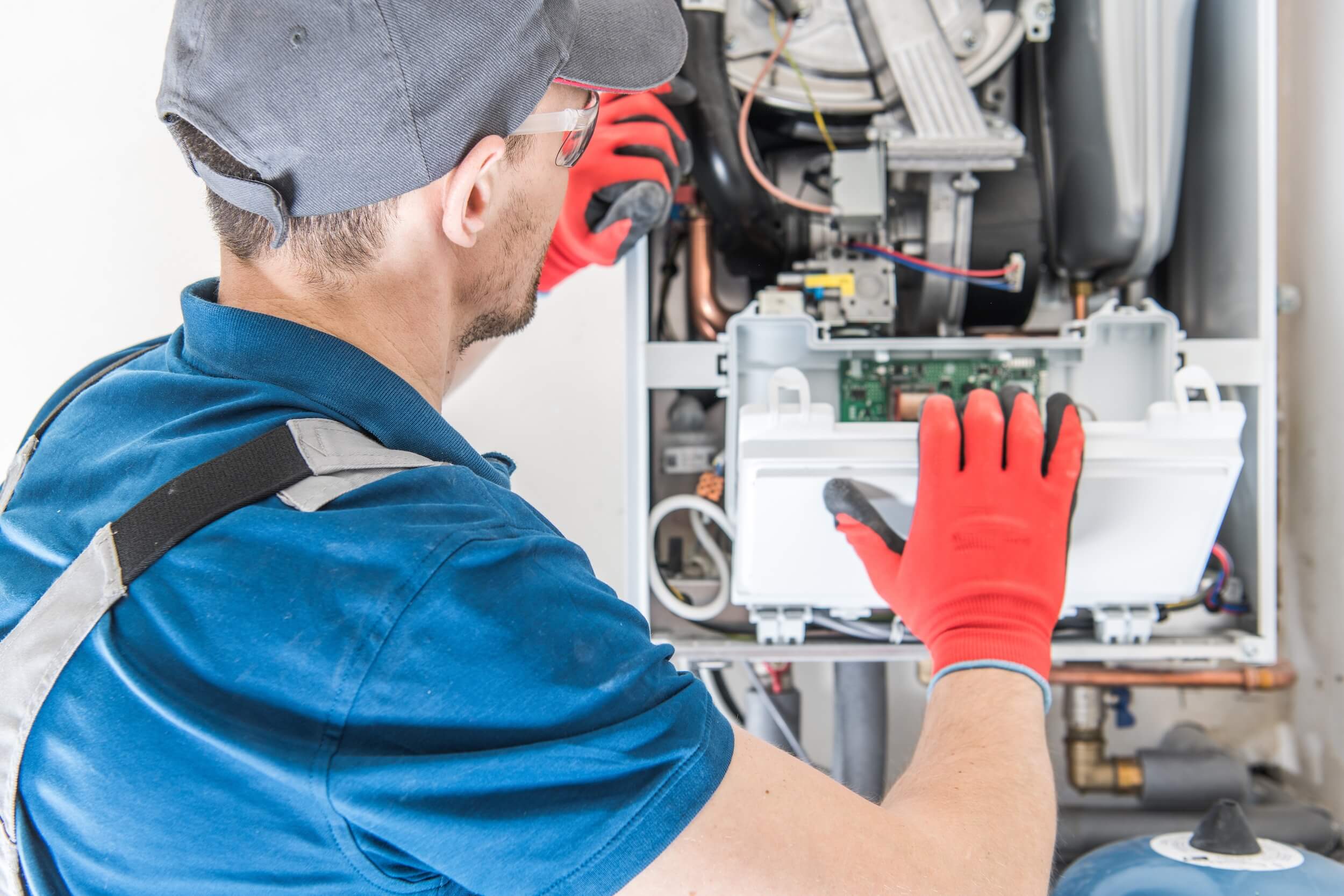Are you interested in information on The Importance of Water Heater Maintenance?

A water heater is just one of one of the most essential standard devices that can be found in a residence. With hot water heater, you don't require to experience the stress of heating water manually whenever there is a demand to take a bath, wash, or the recipes. However, there is always a possibility that your water heater would act up similar to most mechanical devices.
It is important to note any little malfunction and tackle it promptly prior to points get out of hand. Most times, your water heater starts to malfunction when there is a build-up of sediments as a result of constant usage. As a precaution, periodic flushing of your hot water heater is suggested to stop debris accumulation as well as avoid useful failure.
Usual water heater emergency situations and exactly how to take care of them
Too little hot water
Dealing with an inadequate supply of warm water can be discouraging. It may be that the hot water heater can't sustain the warm water need for your house. To take care of this trouble, you could attempt to adjust your heating unit's temperature level dial and also await a couple of mins. You can ask for the help of a professional plumber if the trouble lingers. You can upgrade your water heating unit to one with a bigger capability.
Fluctuating water temperature level.
Your water heater can start creating water of various temperatures generally ice chilly or scalding warm. In this circumstance, the first thing you do is to make certain that the temperature level is readied to the wanted degree. If after doing this, the water temperature keeps changing throughout showers or various other activities, you might have a damaged thermostat. There might be a requirement to change either the thermostat or the home heating device of your hot water heater.
Dripping hot water heater storage tank.
A dripping container could be an indicator of rust. It could trigger damage to the flooring, wall and electrical tools around it. You might even go to threat of having your home flooded. In this scenario, you should switch off your water heater, permit it to cool, as well as meticulously search for the resource of the issue. Sometimes, all you require to do is to tighten a couple of screws or pipeline links in cases of minor leakages. But if this doesn't function and the leak continues, you could need to utilize the solutions of a specialist for an ideal substitute.
Discolored or smelly water
When this happens, you need to know if the problem is from the water or the container resource. If there is no funny smell when you run cool water, then you are certain that it is your water heating system that is malfunctioning. The smelly water can be caused by corrosion or the build-up of microorganisms or debris in the water heater storage tank.
Conclusion
Some property owners overlook little caution as well as minor faults in their hot water heater device. This just leads to further damages as well as a possible full breakdown of your device. You should handle your water heater faults as quickly as they come up to prevent more costs and also unneeded emergency problems.
With water heating systems, you don't require to go with the tension of heating water manually every time there is a requirement to take a bath, do the laundry, or the meals. It may be that the water heater can not support the warm water need for your apartment. Your water heating system can begin producing water of different temperature levels usually ice chilly or scalding hot. If there is no funny smell when you run cool water, after that you are specific that it is your water heater that is defective. The odiferous water can be created by corrosion or the accumulation of germs or sediments in the water heating system storage tank.
What’s Wrong With My Water Heater?
Not Enough Hot Water
You probably encounter this problem in the shower or while washing dishes. As you run your water, you’ll notice it starting to cool down. Turning up the hot faucet may not work, or it may only heat the water for a short period. Your hot water probably comes back and works normally one or two hours after you use it up.
If you’ve never had enough hot water, your heater may be too small for your home. If you haven’t had a problem until recently, there’s probably something’s wrong with your heater’s thermostat. Try adjusting it to see if you can feel a difference. Even if the thermostat’s working, the heating element itself could have burnt out. It’s also possible that a clog has restricted water flow into or out of the heater. Luckily, none of these problems are hard to fix, as long as you call them in early.
Water is Too Hot
Unregulated water heaters can make water dangerously hot. You probably have this problem if you’ve been scalded by your hot water. It’s also a likely culprit if you have trouble getting your faucets to produce a comfortable temperature. This problem is easy to fix, but it can also be a serious health hazard if you don’t address it. If you think your water is too hot, don’t doubt yourself; look into it!
Start by finding your heater’s thermostat and mark its position with a pen. Turn the thermostat to a cooler setting. Wait a couple hours to see if the problem is solved. If it isn’t, listen for boiling in the tank and look for water that comes out of the faucet steaming. In those cases, your temperature-pressure relief valve may be malfunctioning. This is a serious problem that can be dangerous, so you should have it looked at right away.
Discolored or Smelly Water
If all your water looks rusty or smells weird, there’s probably a problem with your pipes. If only your hot water looks weird, however, your water heater is probably at fault. Hot water discoloration comes in several varieties. It could look orange or brown-ish, taste rusty, or feel grainy. It could also look yellow or green-ish and taste gross or feel slimy. Either way, it’s a sign that there’s something wrong with your water heater’s tank.
Usually, hot water discoloration means sediment has built up in your tank. Sediment is made up of hardened minerals that accumulate on the inside of the water heater’s walls. When enough sediment builds up, it causes all kinds of problems–including your discolored water. Try flushing your water heater tank to clean out built up sediment. If the water still tastes rusty, your tank’s rust-preventing anode rod may have worn out. A pro can replace an anode rod easily, but without one, your tank could rust beyond repair relatively quickly.
Leaking
Water heaters can leak from several different places, and each leak means something different. If the leak is coming from a pipe above the heater, it’s possible the tank itself hasn’t been compromised. The cold inlet, hot outlet, and T&P pipes could all leak from above. Try tightening the problematic valve. If that doesn’t work, then the valve or pipe will have to be replaced.
If the leak is coming from the bottom of the tank, it’s important to determine exactly where it is. The leak could be coming out of the drain valve or your T&P valve below the tank. You can replace those valves and preserve the tank itself. If you notice the water tank itself leaking, however, that probably means it’s corroded beyond the point-of-no-return. Leaking water heaters are a big deal, so you should get yours replaced ASAP.
https://www.punctualplumberdallas.com/blog/whats-wrong-water-heater/

I was introduced to that article about Is Your Water Heater Leaking? from a friend on a different web blog. Are you aware of another person who is intrigued by the topic? Why not promote it. Thanks for taking the time to read it.
This Website